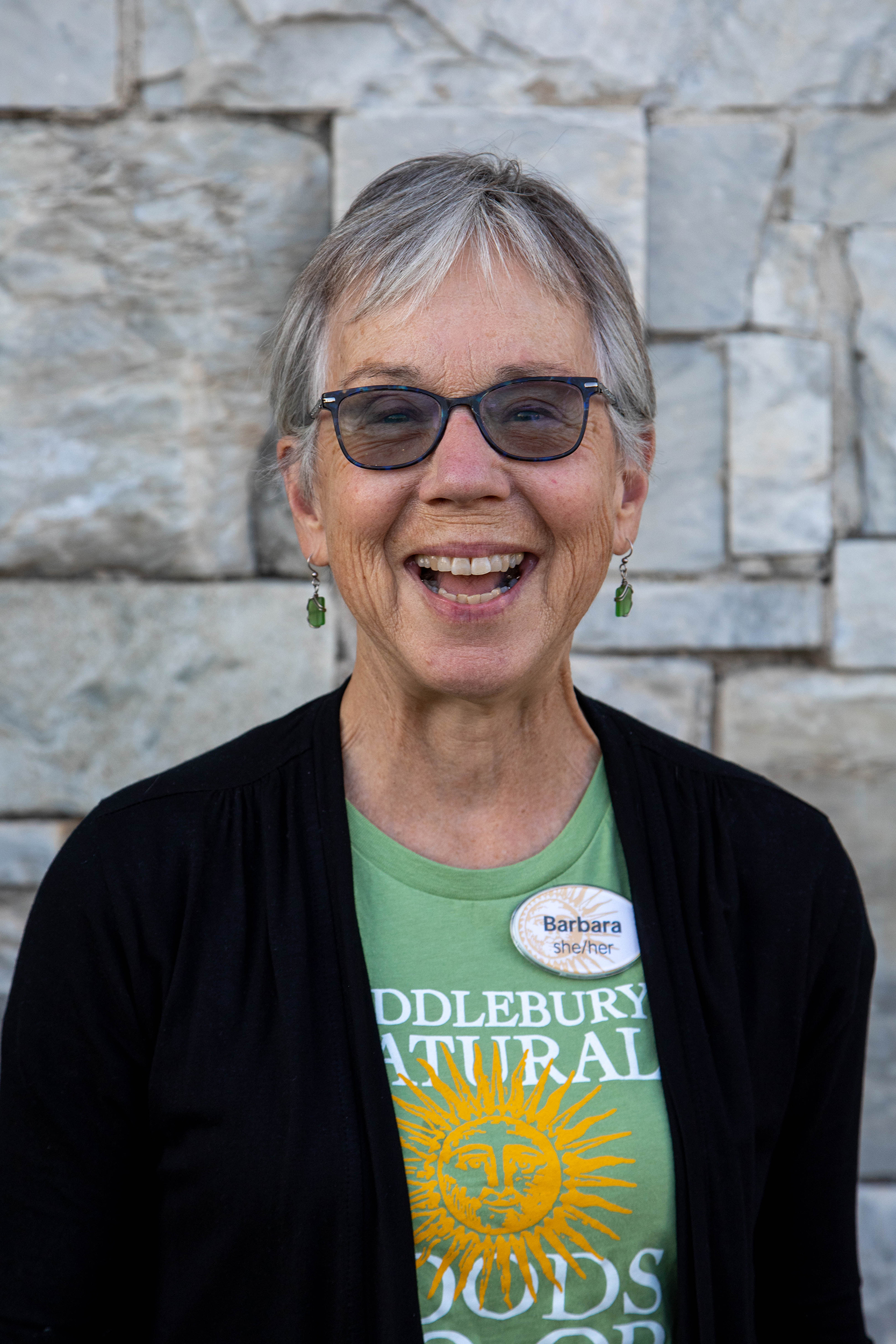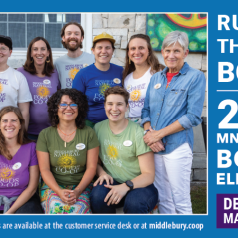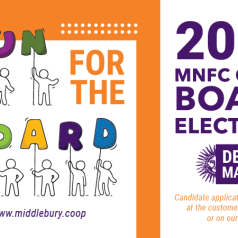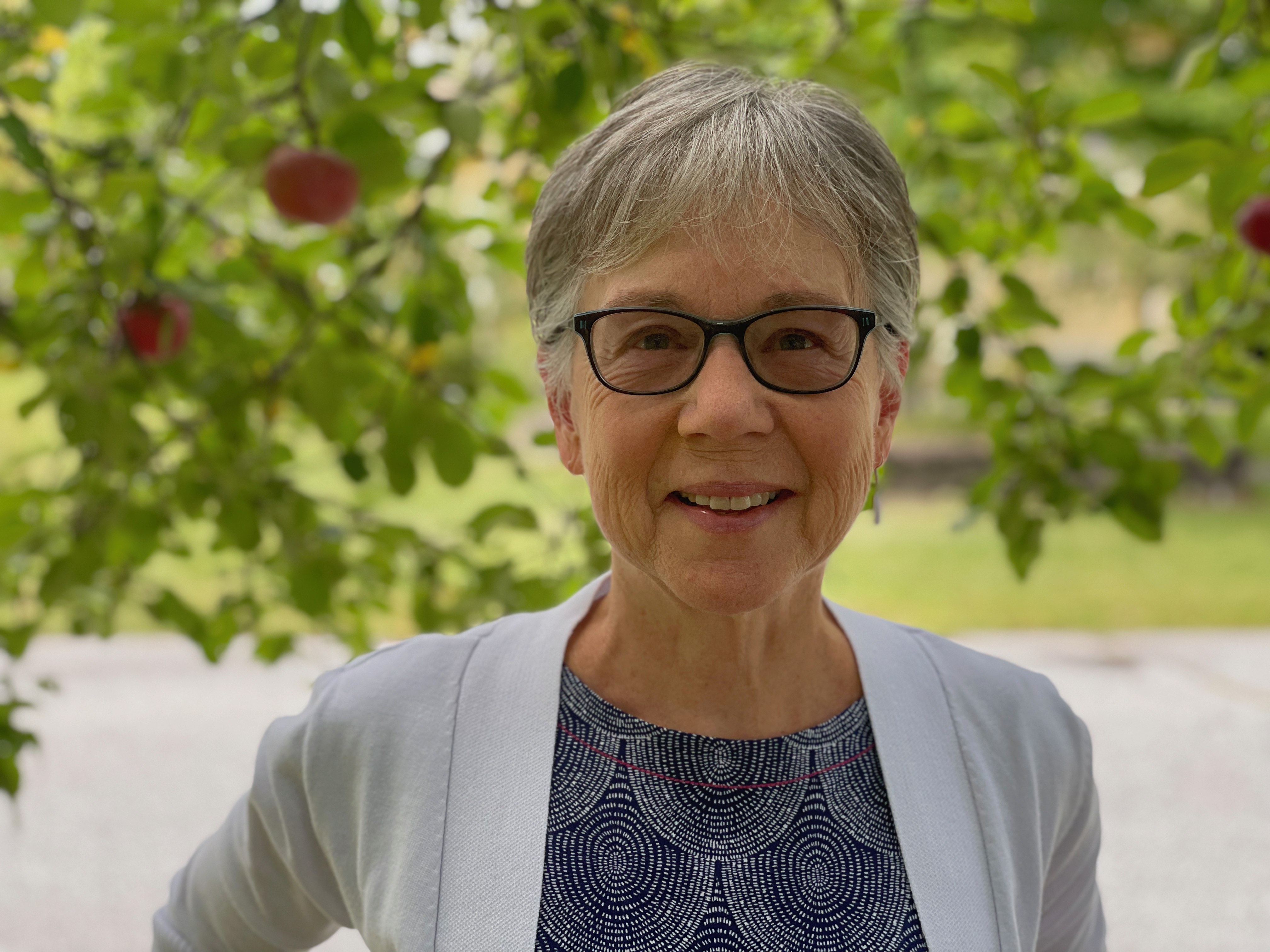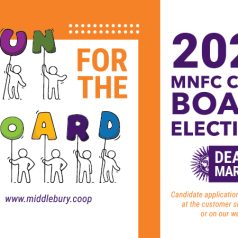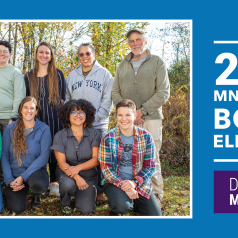
Interested in Getting More Involved in Your Co-op’s Governance? Run for the Board!
Article written by MNFC Board Member Barbara Hofer
Have you loved shopping at the Co-op and think you might want to get more involved and contribute in a meaningful way? I hope you’ll consider running for the Board of Directors. When I participated in a national training for new board members a couple years ago, I learned how fortunate we are to have a co-op that is such a strong, thriving, growing presence in our community. We can’t take this for granted.
The board is composed of 11 members who are elected to serve three-year terms. The board is currently composed of member-owners who have been Co-op members for different lengths of time. We range in age from the twenties to the seventies, and have varying work-lives as pastor, student, farmer, non-profit and college administrators, butcher, baker (no candlestick makers, as yet!), business owner, sales rep, professor, sled dog driver, ceramicist/ fiber artist. This diversity of backgrounds and skills makes our board stronger. What we have in common is a passion for the Co-op, our democratic principles, and the collaborative processes that guide our work together. No particular expertise is required.
The board has three primary roles: 1) to represent the 7,000+ member-owners of the Co-op, 2) to oversee and support the General Manager, and 3) to provide strategic and financial oversight for the Co-op. Board members craft and monitor policies that ensure the Co-op is meeting our mission and our ends. We meet monthly, with online conversations and some committee meetings in between. Board members receive a small annual stipend, a 10% discount, and access to professional training.
Each year we are committed to recruiting new board members to bring fresh voices and diverse perspectives to our team. Institutional knowledge from longer serving board members and fresh perspectives from newer board members are equally valuable. Our board strives to be actively anti-racist and inclusive, and we continue to educate ourselves about what that means and how to put it into practice to better serve our members and community.
There are several opportunities to learn more about the board:
- Co-op members are always welcome to attend board meetings, and it’s a great way to see the board in action and to discover if this might be a good fit for you. Prior to the next two meetings we’ll also hold an informal “meet and greet” to answer any questions and to talk a bit about what we do. These board meetings are on Wednesday, February 18, and Wednesday, March 18th from 6:00-8:00pm, with the “meet and greet” session starting at 5:30. If you’d like to attend either meeting, please contact Board President, Amanda Warren, in advance: board@middlebury.coop.
- We will be holding an Info Session for prospective board members on Zoom, on Thursday, March 12, from 7-8pm. MNFC’s General Manager, Greg Prescott, and I will describe the board’s function, responsibilities, and governing style and answer any questions. RSVP at bhofer@middlebury by Tuesday, March 10, to receive the Zoom link.
We are always happy to connect with you outside of these meetings, too! If you are interested in learning more about what it’s like to serve on the board, don’t hesitate to reach out to me at bhofer@middlebury.edu or speak with any of the other board members. Applications will be due March 27, with more details about the election and the application process provided in the February newsletter.
Barbara is Chair of the Board Development Committee.
